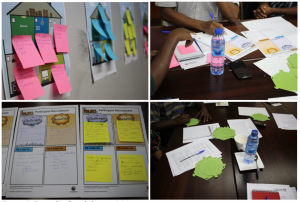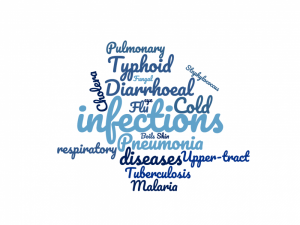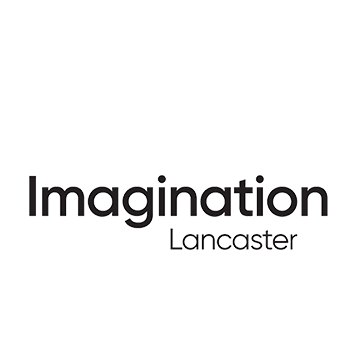Abstract
Executive Summary
Dust Bunnies is a pilot EPSRC project aimed at co-designing and scoping with key stakeholders in Ghana (i.e. local communities, health professionals, environmental scientists, etc.) the full application of further international research into the area of antimicrobial resistance (AMR) in the home environment, which meets local and national objectives in health in the UK and Ghana.
The co-design workshop run in Ghana in early February 2017 helped in establishing the research context, local challenge, research methodology and dissemination strategy for a research bid targeting the AHRC Call on AMR in the Real World: The Indoor and Built Environment. The workshop also created a network of Ghanaian scientists and researchers interested in purposing further research in the AMR and health area.
The key outcomes from the workshop suggest that dust is a health and infection issue, as it is a carrier for bacteria but also it can be used as a medium to monitor bacteria.
Given the scope of the indented research project and the resources available it was suggested to use vacuum cleaners as a medium of sampling dust in household which had one; and use other manual dust collection techniques in households with no access to a vacuum cleaner. A range of different cultural and common household hygiene practices exist. These are often affected and determined by the different houseful environments (urban versus rural) domestic dwellings (private versus communal) and different socio-economic scales (low, low-middle, middle, upper). A range of benefits was identified for households participating in the study, including adoption of better hygiene practices, hygiene and health education, better health and health economic gains. A number of pathways to impact and dissemination effective and relevant to Ghana have been also identified.


